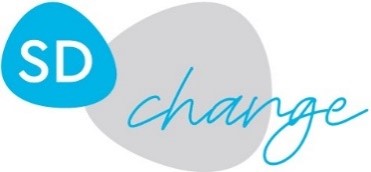


In May 2021 the Association of Employers of Slovenia, together with a Norwegian partner, The Confederation of Norwegian Enterprise (NHO), launched an 18-month project Strong Social Dialogue to facilitate adaptation to change - SD Change, on social dialogue and collective bargaining. The project is supported by the Norway Grants 2014-2021, in the frame of the Social Dialogue and Decent Work Programme – Slovenia (DW-SD-Slovenia 1174), grant no. 2020/551979. The SD Change project will strengthen the capacity of the social partners to cooperate more effectively in policy-making and the implementation of autonomous normative frameworks that will contribute to the more effective use of development potentials and the maintenance of political and social peace.
Social dialogue/collective bargaining is one of the key tasks of employers' organizations, and their purpose is to establish appropriate and quality working conditions. Public policy or a collective agreement can be an important tool for the state or sector or company to ensure social peace, to strengthen the motivation of workers and thus to create a favourable working environment. The way of social dialogue/collective bargaining reflects human resource management policy, and the quality social climate in the country/company has consequences for productivity and the quality of production and the competitiveness of the economy.
The unfavourable situations and circumstances and rapid technological development bring new challenges. The challenges of modern society / the society of the future as economically efficient, socially equitable and cohesive, thus require new forms of value-added and new business models that are compatible with economic competitiveness and equally consider the social dimension and sustainable development.
Among the main challenges the labour market is facing, are new forms of work, adequate education, precarious employment conditions, etc. Social dialogue is extremely important in the field of new forms of work. Traditionally, the social dialogue was based on employees for an indefinite period with one employer, who was able to organize the work process accordingly. With the emergence of new forms of work, the social partners are faced with the question of how to introduce this new aspect into the existing system, how to include all those who perform work outside the traditional employment relationship. In particular, there is the issue of the validity of collective agreements, the provision of minimum wages, safety, and health at work, etc.; at the same time, there is the question of the placement of these forms in addition to traditional employment for an indefinite period. The long-term question is what kind of development of the labour market the social partners want, what forms will be (not) promoted, maintained. Such agreements have a direct impact on the legislator, who, at both the EU and country level, faces various pressures to (de)regulate new forms of work.
In Norway, collective agreements replace the legislation in many ways. Also, they are interestingly tackling new forms of work. Therefore, we will compare how they demarcate new forms of work from the traditional employment contract. Thus, best Norwegian practice will be transferred to compare their response to new labour market challenges (social dialogue, new forms of work, COVID etc.). More, best practices. know-how and experience between Slovenia and Norway will be exchanged.
By carrying out the following project activities:
- the establishment of a labour relations consultative committee to identify and draw attention to problems and to form the positions of employers for this specific area of interest and to strengthen the activities of ZDS commissions which represents the employers' interests;
- organization of regular meetings/networking events of the labour relations consultative committee, composed of employers, trade unions, representatives of policymakers, academia, and experts from Norway, to exchange knowledge, experience and good practices in the field of social dialogue, industrial relations, and the labour market at regional, national and international levels
- exchange of Norwegian and Slovenian good practices and experience in the field of social dialogue, industrial relations, labour market and new forms of work;
- implementation of training for companies’ representatives to acquire knowledge and skills for effective negotiations at national, industry and business level;
- implementation of training for ZDS employees to strengthen their competencies and upgrade their knowledge, which will contribute to strengthening the role of social partners;
- preparation of recommendations for policymakers on different aspects of new forms of work as decent work;
- project dissemination among employers, employees and the general interested public;
we will achieve the following long-term project goals:
- strengthen the capacity and competencies of social partners to participate effectively in the formulation of public policies and approaches relevant to the labour market and to conduct effective social dialogue at the national, industry and business level in Slovenia and to cooperate effectively with the social partners at the EU level;
- enhance tripartite cooperation and involvement of stakeholder institutions at the national, industry and business level.
The long-term effects produced by the Project will be
Through project activities, basic as well as support structures (social partners, their qualifications and capacity) at the national, industry and company levels will be professionally strengthened. This will contribute to adapting to economic trends, adapting to rapidly changing labour market conditions and demographic changes, ensuring an optimal balance between flexibility and security, and the competitiveness of the economy. As the social partners are important actors in addressing this, they need to be constantly strengthened from an institutional point of view and trained to be effectively involved in addressing key issues and in preparing and implementing public policy reforms.
Project partnership
Project promotor - coordinator:
The Association of Employers of Slovenia (ZDS)
Project partner:
The Confederation of Norwegian Enterprise (NHO)
Project Strong Social Dialogue to facilitate adaptation to change (SD Change) is supported by the Norway Grants 2014-2021, in the frame of the Social Dialogue and Decent Work Programme – Slovenia (DW-SD-Slovenia 1174), grant no. 2020/551979.

